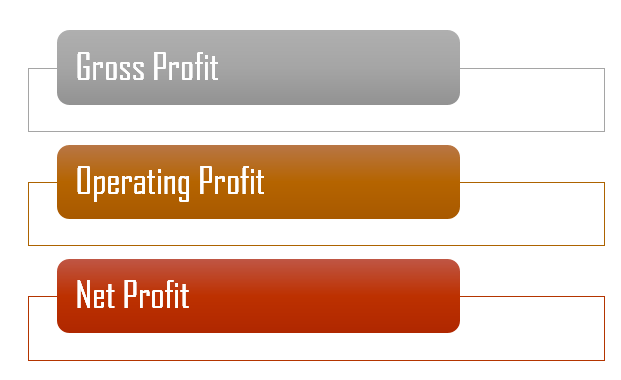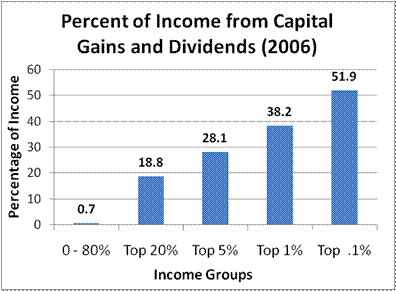Key Difference – Profit vs Gain
Profit and gain are two terms that should be distinguished correctly as these have very different meanings in accounting. The treatment for these two also significantly varies in nature. The key difference between profit and gain is that profit is the total earnings for a period whereas gain is an economic benefit derived by disposing an asset above its net book value or market value.
CONTENTS
1. Overview and Key Difference
2. What is Profit
3. What is Gain
4. Side by Side Comparison – Profit vs Gain
5. Summary
What is a Profit
In simple accounting terms, profit can be summarized as the summation of total income less total expenses. Thus, it is the actual earnings of the company. This is an indication of the financial robustness of the business. The company incurs a loss in case total expenses exceed total revenues.
There are 3 main types of profit reported in the income statement. They are,
Gross Profit
Gross profit is the revenue less cost of goods sold. This shows the amount of revenue left after covering the cost of goods sold and is calculated by Gross Profit margin (GP margin). Higher the GP margin, higher the efficiency in conducting the main business activity.
Gross Profit Margin = Gross Profit / Revenue *100
Operating Profit
When the net of operating income and operating expenses are deducted from gross profit, the resulting profit figure is the operating profit. Higher the operating profit; greater the efficiency of the core business activity. The same is measured by the Operating Profit Margin ratio (OP Margin)
Operating Profit Margin = Operating Profit/ Revenue *100
Net Profit
This is the final profit figure and is arrived at after deducting interest and tax payments and is calculated using Net Profit margin (NP margin). Higher the NP margin, greater the amount of value generation to the shareholders
Net Profit Margin = Net Profit/ Revenue *100

Figure 1: Types of Profit
What is a Gain
In accounting terms, a gain is referred to as any economic benefit derived from outside of the usual business operations. Main ways of a business experiencing gains are,
- Receiving an excess amount of money where a financial instrument is sold for more than its purchase price. This is referred to as a capital gain.
E.g. Consider an investor purchasing 1000 shares of LMN company at $ 15 each (value = $ 1500) in 2017 and if the share price in 2018 has increased to $ 20 each the value in 2018 is $ 2000, where the investor will make a gain of $ 500 if the shares are sold in 2018.

Figure_2: Capital gains are received on financial instruments such as equity shares
- Receiving an excess amount of money to an asset’s carrying value (purchase cost- accumulated depreciation) on asset disposal
E.g. If the carrying value of a machine is $2,500 and it was sold for $3,000 then the gain on disposal is $500
Gains can also be classified according to whether they are realized or not. An unrealized gain occurs when it is known that an asset has increased in value; however, it has not yet been sold. Thus, the said gain is not realized yet. Considering the above example of an investor purchasing shares, he or she knows that the share value has increased to $15 a share, however as long as the shares are not sold, the gain of $500 cannot be received in cash. Thus, this is an unrealized gain. Once the shares are sold, and proceeds are received, then the gain becomes realized.
Gains are recorded in the income statement after the operating profit under the section of other revenues.
What is the difference between Profit and Gain?
Profit vs Gain | |
| Profit is the summation of total income less total expenses. | Gain is the proceeds received from the sale of fixed or financial assets. |
| Generation | |
| It is generated within the usual business operations | It is generated outside of business operations. |
Summary – Profit vs Gain
Even though the terms profit and gain are sometimes used interchangeably, this is not correct, especially in accounting terms. The main objective of the income statement is to calculate the overall profit generated by the company where gains only represent a section in the profit calculation. The difference between profit and gain can be easily distinguished by looking at whether it is resulting from a normal business activity or not.
Reference:
Image Courtesy:
ncG1vNJzZmivp6x7pbXFn5yrnZ6YsqOx07CcnqZemLyue8OinZ%2Bdopq7pLGMm5ytr5Wau2680aidoqxdlruledWsZKCZmaN8